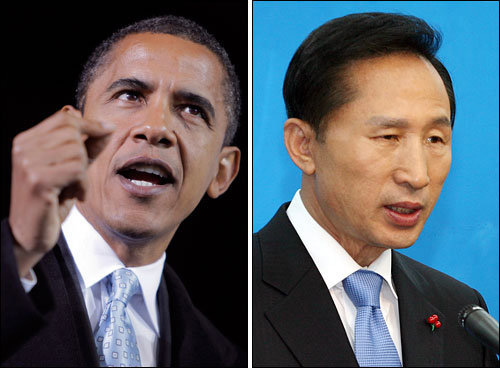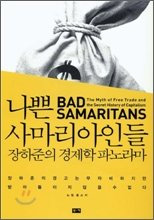 영어토론방 영어토론방 | Home>영어토론방 |
Economy Bad Samaritans
페이지 정보

본문

 (Ha-Joon Chang, Random House)
(Ha-Joon Chang, Random House)
(Summary)
Economic policies that are based on neoliberalism does not helpful for developing economy of developing countries. Developed countries did not wear 'golden straitjacket' called by Thomas Friedman for developing economy. When they got enough wealth, they kick way the ladder by propagating policies of free-market to the other countries. Theory of comparative cost is right when each countries just keep their level of technologies. Imposing legal controls on foreign investments is needed because capitals also have nationality. The regulations are not the important cause to disturb foreign investments. The incentives for foreign investments are 'marketing opportunities', 'superiority of labor and SOC'. Problems of public enterprise are 'master-representive', 'steal a ride', 'limit of soft budget'. These problems are also existed in large, private corporations. Privatization plans for the utility companies is not good solution for enhancing efficiency. In addition, it is harder to use the policies of Imposing legal controls on private corperations and giving a subsidy to private corporations than managing public enterprises for governments in the developing countries. Although the patent and copyright system are also needed, excessive protection for copyright will cause decrease public interests. Keeping nation’s fiscal health and price stabilization does not a cure-all for economy of developing countries. Iirregularities and corruption, and non-democratic governments are not enemies to economic growth. Proper incentives will quickly change cultures. So, developed countries should suggest developing countries policies of protective trade for their economic growth.
(appreciative criticism )
Policies of protective trade by United Kingdoms damaged textile manufacturing industry in India. So I guess UK became rich but India became poor. By following principles of free-trade, UK could get copyright of textile manufacturing machines first. Next UK could get royalty from textile manufacturing industry in India, or could bulit factories in India. I think thwas the win-win game. If UK took this plan, UK did not satisfied with its own position, but it could get better position by itself. And the author told that developed countries should support developing countries because the support gives developed countries economical profits. But, he did not mention 'opportunity cost' that the cost consumed for supporting developing countries could be used to develop technologies for developed countries itselves. So the plan by the author have many weakness. If the capitalism of market suggests that people can invest by following their own incentives but they should be charge of the result of investment, it is hard to invest 'uncertainty' just because he or she took the suggestion based on 'No investment, No profits.'. And, I need contrast between author's 'low growth rate', 'the unimproved gap between rich and poor' and the comments related to same topic in the book 'Skeptical Enviornmentalist'.
http://www.toronsil.com/technote7/board.php?board=bookdebate&command=body&no=163&command=body&no=163
(Debate Topics)
1. A common idea that observing principles of free market made the the miracle of Korean economy should be changed?
2. Should developed countries suggest developing countries policies of protective trade for their economic growth?
3. We should not allow editing history for winners and reinterpreting past by using the view of present.
4. Policies of free trade and free market based on neoliberalism does not help to get growth and equality?
5. Should public enterprises come under private management?
6. Is it essential that developing countries bollow ideas from advanced countries for economic growth?
7. Should we admit that irregularities and corruption come from 'excessively huge market?'
8. Should we admit that free market does not absolute friend of democracy?
9. Should we admit that people in developing countries are lazy because the countries are poors?
10. Should countries in the world abolish industry customs completely?
11. Should we take a short-period loss to develop abilities in the long period?
12. Our country should concentrate to develop the manufacturing industry instead of the first industry and the service industry.
13. Our country should hire first-class economists to manage good economic policies.
댓글목록

ace나그네님의 댓글
ace나그네 작성일
I participate the class 'Reading books and Debate'. I participate this class by using Korean. I need to finish this homework before 16th in this month. This homework is that I should read 'Bad Samaritans' and make summary, appreciative criticism, debate topic based on the book. I need my opponent who will correct my homework by pointing out my weakness in my homework as harsh as possible. If someone do this, I will advocate my homework that have worth to give me highest scores. Because I want to do this, I translated my original Korean homework to English. I should finish my homework by using Korean, but I need help from this site.
You can pointing out anything, and everything that will prove that the homework have not worth to give me highest score. For example, you can pointing out the summary is too long or too short. You can pointing out my summary contain unnecessary things or does not contain necessary things. You can pointing out
'appreciative criticism' have many logical errors. Or you should pointing out my debate topic cannot fulfill the standard.
1st. 'Debate Topic' should be made for dividing pros and cons clearly.
2nd. Pros should require 'change current situation', Cons should require 'keep current situation if they debate by accepting debate topic.

dhdaudwo20님의 댓글
dhdaudwo20 작성일
1961년 8월 4일 미국 하와이주의 호놀룰루에서 케냐 출신의 하와이대학 유학생인 흑인 아버지와 미국인 백인 어머니 사이에서 태어났다. 2세 때 하와이대의 첫 아프리카 유학생이었던 아버지는 이혼하고 케냐로 돌아갔다. 1966년 재혼한 어머니를 따라 인도네시아로 이주하였다가 어머니가 다시 이혼하여 하와이로 돌아왔다. 다인종·다민족·다문화 가정에서 자라면서 술과 담배와 마약에도 손을 대는 등 불우한 청소년 시절을 보냈으나, 이러한 경험을 통하여 관용과 화합을 배우게 되었다.
하와이에서 푸나호우고등학교를 졸업한 뒤 로스앤젤레스의 옥시덴털대학교에 진학하여 2년 동안 공부한 뒤 뉴욕의 컬럼비아대학교 정치학과에 편입하였다. 대학 시절부터 아프리카계 미국인으로서 정체성에 눈을 뜨게 되어 마약을 끊고 학업에 정진하였다. 1983년 대학 졸업 후 잠시 컨설팅회사에서 일하다가 1985년부터 사회운동에 투신하여 시카고 빈민가에서 주민들의 주거와 교육 환경을 개선하는 데 헌신하였다.
1988년 하버드대학교 로스쿨에 입학한 뒤 1991년 최고 권위의 로스쿨 학술지로 인정받는 《하버드 로 리뷰 Harvard Law Review》의 첫 흑인 편집장이 되어 주목을 받았다. 1992년 로펌에서 만난 미셸 로빈슨(Michelle Robinson)과 결혼하였으며, 1993년부터 2004년까지 시카고대학교 법과대학에서 전임강사로 헌법을 가르치기도 하였다.
1996년 일리노이주 상원의원 선거에 출마하여 당선됨으로써 정치에 입문하였고, 1998년 재선되었다. 2000년 연방 하원의원에 도전하였으나 민주당 내 경선에서 패배하였고, 2002년 일리노이주 상원의원에 3번째로 당선되었다. 2004년 민주당 전당대회에서 진보와 보수, 인종 차별이 없는 하나의 미국을 지향하여 불안 속에서도 담대한 희망을 갖자고 역설하여 전국적 명성을 얻었고, 그해 흑인으로는 유일하게 연방 상원의원에 당선되었다.
2007년 2월 링컨 대통령이 노예해방 투쟁을 선언한 장소인 일리노이주 스프링필드에서 대통령 선거 출마를 선언하였다. 민주당 대통령 후보 경선에서 힐러리 클린턴, 존 케리, 존 에드워즈 등과 경쟁하였고, '변화와 희망'을 앞세워 2008년 1월 첫 경선지인 아이오와주 코커스에서 승리를 거둠으로써 돌풍을 일으켰다. 이후 힐러리 클린턴과 경합 끝에 2008년 8월 민주당 대통령 후보로 확정되었다.
대통령 선거 공약으로는 집권 후 16개월 안에 상원의원 시절부터 명분 없는 전쟁이라고 반대해온 이라크전쟁에서 철군할 것과 전국민 건강보험 혜택을 비롯하여 대학 교육비 절감, 중산층과 서민을 위한 세제 개편 등 사회복지 정책을 적극적으로 추진하고 대(對) 북한 정책에서도 전임 부시 정부와 달리 직접 협상 등 적극적 개입으로 한반도의 긴장을 완화시킬 것 등을 제시하였다.
유권자들에게 '변화(change)'와 '우리는 할 수 있다(Yes, We can)'라는 희망으로 다가서면서 흑인뿐 아니라 백인들에게도 폭넓은 지지를 얻었다. 이를 바탕으로 2008년 11월 4일 치러진 대통령 선거에서 공화당 존 매케인 후보의 2배가 넘는 선거인단을 확보하여 압도적 승리를 거두고 2009년 1월 20일에 제44대 미국대통령에 취임하였다. 투표일에 우려했던 '브래들리효과(선거 전 여론조사에서는 앞섰던 흑인 후보가 실제 개표에서는 득표율이 낮게 나오는 현상)'도 나타나지 않음으로써 미국의 첫 흑인(혼혈) 대통령이 되었다.
취임 후 이전 부시 정권의 일방주의 외교정책으로 교착상태에 빠진 중동평화회담을 재개하는 데 힘쓰고 핵무기 감축, 대화와 타협을 통한 국제분쟁 해결, 기후변화 대응 등에 노력하였다. 2009년 "국제외교와 인류들의 협력 강화를 위하여 기울린 비상한 노력"을 평가받아 노벨 평화상 수상자로 선정되었는데, 이에 대해서는 아직 가시적 성과를 이루지도 못한 시점에서 성급한 수상이라는 논란이 일기도 하였다.
2012년 민주당 대선 후보로 출마해 연임에 도전, 공화당 미트 롬니 후보와 접전을 벌인 끝에 재선에 성공하였다
는 개뿔 좇까 이병신들아ㅗㅗㅗㅗㅗ

